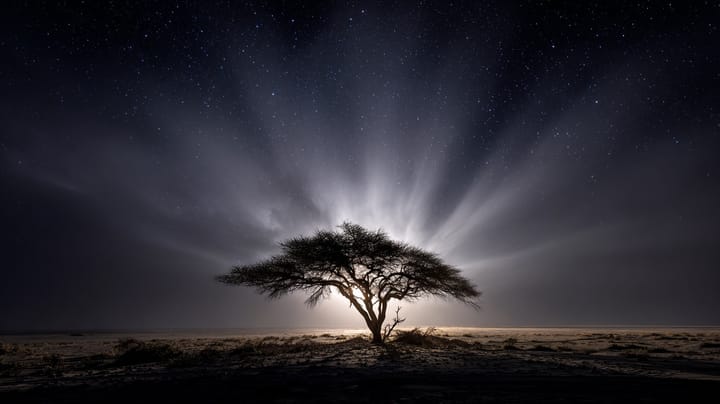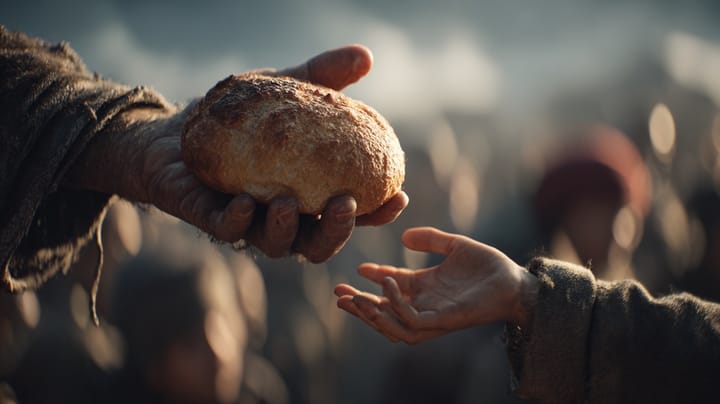Fairhaven Sermon 10-8-2023

Summary
This week’s sermon begins by acknowledging that October is a time when many churches discuss stewardship and giving. However, Pastor Peg says that before talking about giving, we need to focus on who we are giving to – God. Pastor Bowman then reflects on God’s qualities – God is our heavenly parent, creator, provider, teacher, and savior who loves us deeply.
The sermon then examines a passage from Exodus containing the Ten Commandments. Pastor Peg explains that the commandments are not arbitrary rules but rather loving guidance from God about how to live justly and treat others with dignity. Pastor Peg connects this to the idea of stewardship, which is carefully and responsibly managing what God has entrusted to our care. The sermon emphasizes using our unique gifts and talents as an act of stewardship that brings joy. Overall, Pastor Peg’s message is that stewardship begins with focusing on God’s love and who God has created us to be.
Transcript
Well, this month of October is traditionally the time of year when many churches focus on the subject of stewardship. And so it’s kind of odd to me that I’ve been here with the partnership so long as I have, and I’ve never preached a sermon on giving, or heard one for that matter. I will get to it one day, but not today. As Pastor Dylan said in an email earlier this week, God trusts us to use what God has given us in God’s service, and this can mean a lot of different things.
So this month we are preaching a sermon series called Thriving, which touches on stewardship and other ways of serving God. And before I begin, I want to start by focusing on God. all talk about giving in any way, in any context, we need to start with who we’re giving to. I mean, think about how we Christmas shop, right? We think about the person or the people who we are shopping for.
What do they like? What do they enjoy? What are they into? And this involves thinking about that person or those people. So before we start planning on giving to God, I think we need to spend a moment thinking about God and what God likes. God is our heavenly parent, our creator, our designer, our provider, our teacher, our savior. God is the one who loves us more than anyone else.
And when we stand in God’s presence, we stand kind of like children wanting to say thank you to God who has given us more than we can imagine, more than we know. At the same time, when we think about giving to God, it’s kind of like the old question, what do you get for the one who has everything? Because God really does have everything. I mean, if God created everything and if God needed something, God could create that too. So we start by letting God be God.
What is it that our heavenly parent might want from us? What is it that any parent wants? Love, of course, and respect. I mean, that’s what every parent treasures most from their children. What a child has or what a child does may please a parent, but that’s not what the relationship is about. More than anything, like a parent, God wants to hear from us.
God loves to hear our voices. When we pray, when we sing, when we read God’s Word, we are being God’s children. Above all, God wants us to hear God saying to each one of us, You are my beloved son, or You are my beloved daughter. That’s where it all begins.
So this morning in our scriptures we heard two lessons. We heard the psalm, we read the psalm together, and we heard the gospel. But as you know, every Sunday we actually have four scripture readings assigned, Old Testament, psalm, New Testament, gospel. And today I would like to set a foundation for our subject of stewardship in what would have been our Old Testament reading.
The Old Testament reading assigned for this day is Exodus 20, verses 1 through 20. And I won’t read the whole thing because I don’t need to. You all know it. It’s the passage that starts out, I am the Lord your God who brought you out of the land of Egypt, out of the house of slavery.
You shall have no other gods before me. You shall not make for yourself an idol. You shall not take the name of your Lord your God in vain. Remember the Sabbath day to keep it holy.
Honor your Father. And you guys, it sounds familiar, right? You know this, right? Today’s Old Testament reading is the Ten Commandments, words that most of us have known most of our lives. And just to finish out the ten, God also said, You shall not murder, you shall not commit adultery, you shall not steal, you shall not bear false witness against your neighbor, you shall not covet anything that belongs to your neighbor. So what does this have to do with stewardship? Actually quite a bit.
Will you take a look at it? Leadership at its foundation is making good use and wise use of what God has given us. And God’s Word in the Bible is one of the greatest gifts that God has given us. And that’s why I really appreciate the message that’s out on our bulletin board this week. Read the Bible.
It’s user-friendly. Plus we offer tech support on the side. That’s great. That’s exactly right.
Yes, right on. Yes. We approach God’s Word with the intention to be good stewards of it by reading it, understanding it, explaining it to others, sharing it, living it. God’s Word in the Bible is the greatest resource we have for living.
In the Bible, we learn about how God called the people of Israel to be God’s chosen people and how God set them free from slavery and guided them through the wilderness and into the Promised Land. We learn all these things are true for us also, because God has set us free from slavery to sin. God has set us free to be God’s people, and God is guiding us through this life, this wilderness, into the promised land of God’s kingdom. In the Old Testament, we see the people of Israel becoming a nation, not just in the political sense, but in the sense that they were and are God’s people.
The promises given in the Old Testament are to the people of Israel. Talk about a Messiah who will one day come and call God’s people back to God. And here are just a few of those promises from the Old Testament, from the book of Numbers. I see him, but not now.
I behold him, but not near. A star will come out of Jacob, and a scepter will rise out of Israel. From the book of the prophet Isaiah, Here is my servant whom I uphold, my chosen one in whom I delight. I will put my spirit on him, and he will bring justice to the nations.
And also from Isaiah, For behold, darkness shall cover the earth, and gross darkness the people, but the Lord shall arise upon thee and his glory shall be seen upon thee and the Gentiles shall come to thy light and kings to the brightness of thy rising. All of these passages and many more come to us from the Jewish prophets and the Jewish kings and we build on their foundation. So the first thing we need to be good stewards is God’s Word in all its fullness, in all its history, with all of its foundation, in all that God has done for God’s people for thousands of years. And where it comes to the Ten Commandments specifically, in the words of the Salt Commentary that I love so much, you all have heard me talk about that, they said that the commandments Commandments are not arbitrary prohibitions, but rather loving limits that guide human beings toward living with justice and grace and dignity with both God and neighbor.
The commandments transform doing the right thing into a calling, something that we do because we are devoted to God. Following these commandments comes from the heart, not just from a sense of duty. We do them, we follow the commandments because we love God. And we love God because God first loved us.
Now at this point I need to stop just for a second and talk about the word stewardship since we’re going to be doing that for the next month. One dictionary I read defines stewardship as the job of supervising or taking care of something. Another dictionary says stewardship is the careful and responsible management of something entrusted to one’s care. I kind of like that one better.
But there’s an older meaning, a historic meaning that I think is closer to what God is talking about. In the old days, and even today in some very wealthy places, a steward is someone who is employed in a large household to manage domestic concerns such as the supervision of servants, collection of rents, keeping of accounts. In other words, it’s a position with a very high level of trust to care for and manage a large household, including the financials, on behalf of the owner. That’s what a steward does.
For those of you who’ve enjoyed watching Downton Abbey, Mr. Carson, even though he was only the butler by title, was for all intents and purposes the steward of the household. He was the ultimate in being discreet. He was the right-hand man of the Earl of Grantham, who he served with all his heart, out of love, not just because he was paid.
This is the role that we are called to as stewards, each one of us. We are called to be stewards of what God has placed in our hands, whatever that may be, to hold for God and to preserve for God and to use for the benefit of God everything that we have and everything that we are and everything that we have the ability to influence. Thinking along these lines, John Wesley, the founder of the Methodist Church, considered stewardship to be absolutely essential to the Christian faith. Wesley’s teachings about stewardship usually centered around money, but not for the reasons that we might think.
As the Methodist movement grew and as people in the Methodist movement got better at earning money, because you remember it first started out with the poor, but as the movement grew, people got better at earning money, got better at saving by using the gifts and the skills that God had given them. What happened really naturally was that Methodists began to be wealthy people. And the Methodist movement, like I said, it started out with a ministry to the poor. And John Wesley, at the end of his long life, he died in his late 90s, the end of his long life was concerned about this.
He was concerned about this trend. He said, and I quote this, he said, Wealth and the failure to give are the most serious threats to the Methodist movement in particular and Christianity in general. That’s our founder. Wealth and the failure to give, the greatest threats to the faith.
Food for thought. Wesley’s teaching on stewardship, like most of what he did, was very simple and very direct. He said, and you’ve probably heard this before, Gain all you can, save all you can, and give all you can. Three points that he drilled home whenever he preached.
He said, Gain all you can, of course, by working for it. Save all you can, not just by stashing money in the bank, but by limiting spending and not buying things we don’t need. And then finally, give all you can, doing our part to distribute God’s resources fairly. Wesley said that doing the first two, the gaining and the saving, without doing the The third would be worse than ever having been a Christian in the first place.
Of course, Wesley is speaking about money here, but his concept applies to other areas of life as well. We should never, for example, stop gaining in knowledge or in understanding or in compassion. We should never stop saving knowledge in order to share it or saving compassion in order to offer it. If we have knowledge but never speak what we know, our knowledge is wasted.
If we feel kindness and compassion but never express it, the people we care for will never know. So it all needs to be all three, gaining, saving, and giving. With all of this said as background, now I’d like to turn our attention to the scripture reading for today. At this point in the reading from Matthew, Jesus is in the temple and the events of Palm Sunday have just happened maybe a day or two before.
And Jesus is sitting in the temple and teaching and the crowds love to listen to him. You can just imagine how many people were taking days off from work to check Jesus out. Not so much the Pharisees and the other religious authorities who were standing around in the background waiting for Jesus to make a mistake so that they could pounce, right? So Jesus tells a story. He talks about a man who planted a vineyard and immediately the people listening to Jesus know that he is talking about the nation of Israel because Israel is often referred to in the Old Testament as a vineyard, so they know this.
God is the owner of the vineyard, has done everything to raise healthy vines. He has protected it, he has built a watchtower so guards can watch over it, and he leases it to tenants and goes away for a while. And the tenants represent the nation of Israel’s kings and priests and religious leaders. So when it comes time for the harvest, which should have been a time of celebration, like our Thanksgiving, harvest time, tragedy happens.
The landowner sends a message to the tenants to bring some grapes for the celebration, but the tenants mistreat and murder the messenger. And the owner tries again and the same thing happens. And then the owner sends his son saying to himself, Well, they’ll respect my son. But the tenants say to each other, Hey, this is the heir.
Let’s kill him and the vineyard will be ours. Now what Jesus has not told the religious leaders yet is that He Himself is the Son, and the religious leaders are the murderers. And at this point in the story, Jesus asks the religious leaders point blank, What will the owner of that vineyard do to those tenants? And they answered, He will put them to a miserable death. And Jesus said, Have you not read in the Scriptures, ‘The stone the builders rejected has become the cornerstone’? Therefore the kingdom of God will be taken away from you and given to a people who produce the fruits of the kingdom.
And they realized that he was talking about them and they went away to make plans to do the very thing Jesus had said they were going to do, kill the Son. This particular passage doesn’t have a whole lot to do with stewardship, at least not on the main point. The main point of the story is not directed at the vines, it’s Jesus is speaking to the evil tenants. So the parable is actually a word of warning to those of us who preach to be certain that we are doing it with loyalty and accuracy and love for God and God’s people.
But this parable does have a secondary meaning for all of us, which is that as vines, we were created to grow and be healthy and produce fruit. One author puts it this way, Let us be challenged by this parable to speak into our culture words of life and hope and blessing. Another author says, The fruits that we bear include justice and mercy and humility. We’re not limited to these, but if we don’t see the fruits in our lives, we can turn to God and ask for God’s help because God is the vine grower and God knows what we need.
And I would also ask from my own life experience that we bear fruit when we, I would add rather, that we bear fruit when we use the gifts and the talents that God has given each one of us. For example, I have known all my life that I have gifts in teaching and in music, but I use them as often as I can. The great joy of this though is that when we use the gifts God has given us, it’s a It’s a pleasure to do so because it’s what we’re designed to do. The artist takes joy in painting and the sportsman takes joy in sports and the cook takes joy in cooking and all of these gifts and so many more can be shared with God’s people and done to God’s glory.
The Ten Commandments that God gives us in Exodus and the words of warning that Jesus gives us in Matthew guide us to think about what’s in here. What has God created in here that God wants us to share with the world? Each one of us has something unique and beautiful to share, given by God. Using those gifts is where stewardship begins. It’s our calling, it’s our joy, it’s our privilege to be stewards of what God has given us.
And so we do so to God’s glory. Amen.


